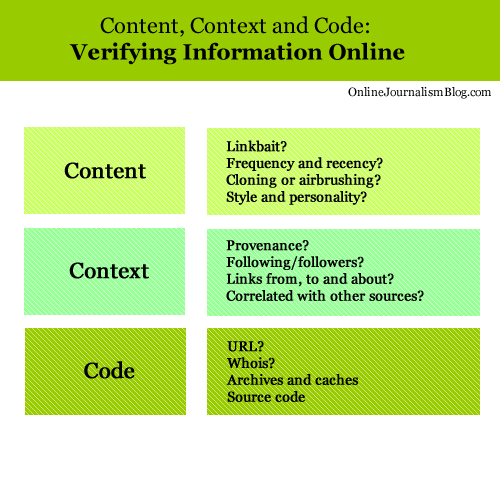When the telephone first entered the newsroom journalists were sceptical. “How can we be sure that the person at the other end is who they say they are?” The question seems odd now, because we have become so used to phone technology that we barely think of it as technology at all – and there are a range of techniques we use, almost unconsciously, to verify what the person on the other end of the phone is saying, from their tone of voice, to the number they are ringing from, and the information they are providing.
Dealing with online sources is no different. How do you know the source is telling the truth? You’re a journalist, for god’s sake: it’s your job to find out.
In many ways the internet gives us extra tools to verify information – certainly more than the phone ever did. The apparent ‘facelessness’ of the medium is misleading: every piece of information, and every person, leaves a trail of data that you can use to build a picture of its reliability.
The following is a three-level approach to verification: starting with the content itself, moving on to the context surrounding it; and finishing with the technical information underlying it. Most of the techniques outlined take very little time at all but the key thing is to look for warning signs and follow those up. Continue reading

